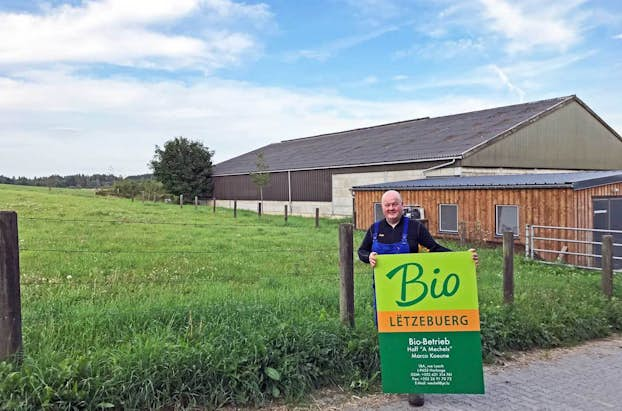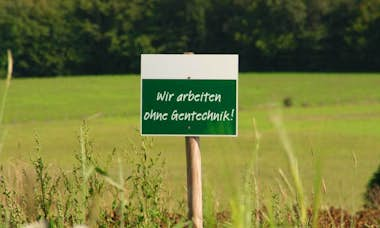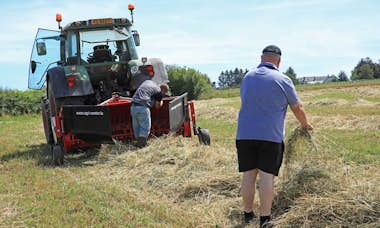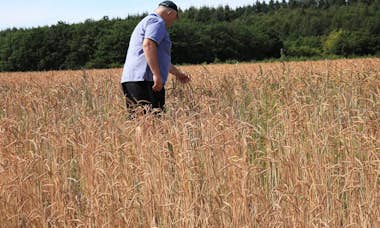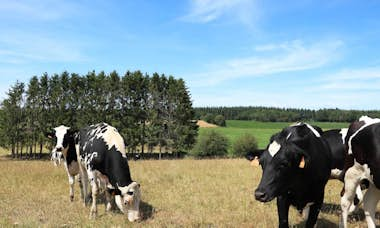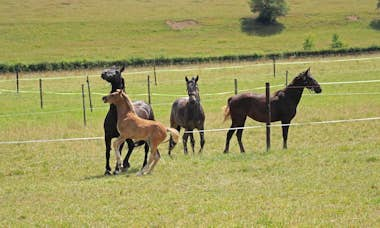- Member ofVereenegung fir Bio-Landwirtschaft Lëtzebuerg asbl.
Bio-Haff A Mechels - Marco Koeune
"Protecting drinking water with an organic farm"
High level of commitment at the Obersauer nature park
"It is very important to me to preserve nature and important resources such as soil and water through our farming methods. In the drainage basin of the Obersauer Reservoir, the main outcome of the organic farm, apart from milk production, is drinking water. According to Marco Koeune, uncontaminated drinking water is an eminently important production factor for supplying many communities in Luxembourg. The protection zone concept around the reservoir includes a number of restrictions in the cultivation of the fields, especially in the storage and application of organic farm manure. Organic farming is virtually predestined for water protection zones, as the way in which production takes place keeps nitrate levels in the leachate to a minimum and does not use any mineral/synthetic nitrogen fertilizers. PSM is a no-go in organic farming.
For this reason, the dairy farmer has chosen the path of organic farming. The organic farm called "A Mechels" located in Harlingen has been certified organic since 1998. In 2018, together with the young farmer Marc Becker, an operating company was founded to transfer the farm to the next generation. The young farmer sees the challenges of efficient milk production in the combination of modern technology both in herd management and in soil cultivation, which does not necessarily have to be in conflict with organic farming. The organic farm is not a petting zoo and must also be managed profitably. Marc Becker also runs a riding farm with horse boarding together with his partner.
My main motivation for switching to an organic production was the conservation of natural resources. With the location of my farm in the area of the water reservoir "Stauséi", the protection of drinking water plays an extremely important role.
More biodiversity and soil fertility
Legumes (red clover, alfalfa) in combination with ryegrass in the crop rotation guarantee a reasonable yield in field forage cultivation. Spelt and wheat are cultivated as well as some summer crops. In increasingly dry years, the cultivation of corn has proven to be a good way of securing yields on organic farms. With the use of a rotary tiller, we try to cultivate the soil very flat and incorporate compost. The liquid manure is incorportaed in the soil according to the Cultan fertilization. In addition, some land parcels are registered in biodiversity programmes and hedges and fruit trees are regularly planted in cooperation with the biological station. This creates new habitats for rare birds such as the Great Grey Shrike and also beautifies the landscape.
The organic farm "a Mechels" is a member of the BIOG cooperative and a shareholder of the BIOG dairy, which buys, processes and markets its milk.

